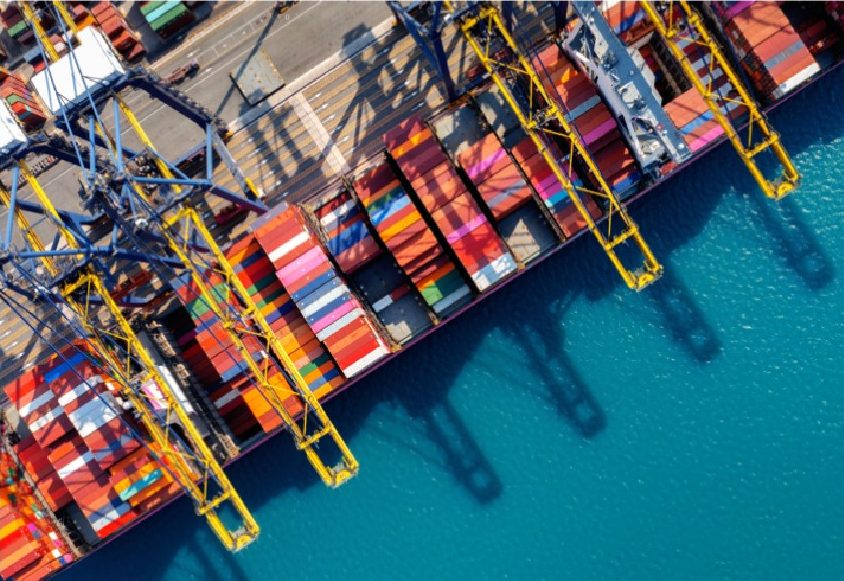As President Trump’s ‘America First’ regime takes off, economic news has been dominated by trade. Trump has long been opposed to the substantial trade deficits the US has with countries around the world, as well as the decades-long decline in US manufacturing. To combat this, the President has turned to tariffs to encourage consumption of domestic goods, in the hope that American manufacturing will prosper once again. The significant spike in the US’s effective tariff rate on other countries will have a clear and direct economic impact on prices and supply chains. However, just as significant is the indirect effect of increased uncertainty.
From India to Switzerland: the international spike in uncertainty
The world was anticipating increased protectionism following the result of the US election; however, its scale was unexpected. On April 2nd, 2025, Trump announced a minimum 10% ‘reciprocal’ tariff rate, and far higher rates for those with notable trade surpluses with the US. Financial markets dived following the announcement, and the global stock market lost $8.6 trillion following a mass sell-off in financial assets, alongside a depreciation in the dollar in anticipation of economic turmoil.
Following the shock announcements in April, Trump did offer a 90-day pause for the tariff hikes as a small window for bargaining. However, the hope of comprehensive trade deals with the world slowly faded as Trump’s deadline for agreements crept up. Very few countries managed to strike a deal with the US, and this raised uncertainty. India has been a recent victim of this, where Trump’s anger over their purchase of Russian oil has materialised into threats of further tariff hikes. The President’s recent announcement of 39% tariffs on Swiss exports also came as a big surprise and has dampened the country’s growth outlook. Uncertainty has also been exacerbated by other factors, including the risk of retaliation and court rulings over the legality of the tariffs.
However, making the future even more unclear is the imbalance between Trump’s rhetoric and his actions. Indeed, the popularised phrase ‘TACO’, short for “Trump Always Chickens Out”, mirrors the public view that the President is unlikely to follow through on his extreme threats. This sparks questions on how far he will go. The answer remains unknown.
The data reflects this sentiment in the markets. The US’ Trade Policy Uncertainty (TPU) index shot up in April, and data from The Conference Board showed a dip in US consumer confidence, partly driven by pessimism over future business conditions induced by higher tariffs. These high-frequency measures reflect that the recent business environment in which economic agents are making consumption and investment decisions has been highly uncertain.
What are the economic effects of uncertainty?
One of the key channels through which trade uncertainty affects the economy is through investment. In economic literature, there is a general understanding that high uncertainty hinders investment. Economic forecasts for the US – and most countries targeted by tariffs – were revised downwards following ‘Liberation Day’, raising concern over the future business environment. As the reward of investment will be realised in a future period, if businesses are pessimistic or unsure about the economic outlook, many of them may delay their investments. As investors wait to gain more insight into what the future holds, the economy can stagnate, which in itself can raise uncertainty and reduce demand further, generating a negative feedback loop.
Similarly, uncertain consumers are more likely to delay spending and save more, reducing demand in the economy and the demand for workers. In an economy where consumers and investors are hesitant, government policy may also become less effective. It is challenging for a stimulus to encourage activity in a period of pessimism. By announcing tariffs on nearly every country across the globe, this economic shock has induced international uncertainty, and this acts as a major downside risk for the global economy.
Written 05/08/2025






